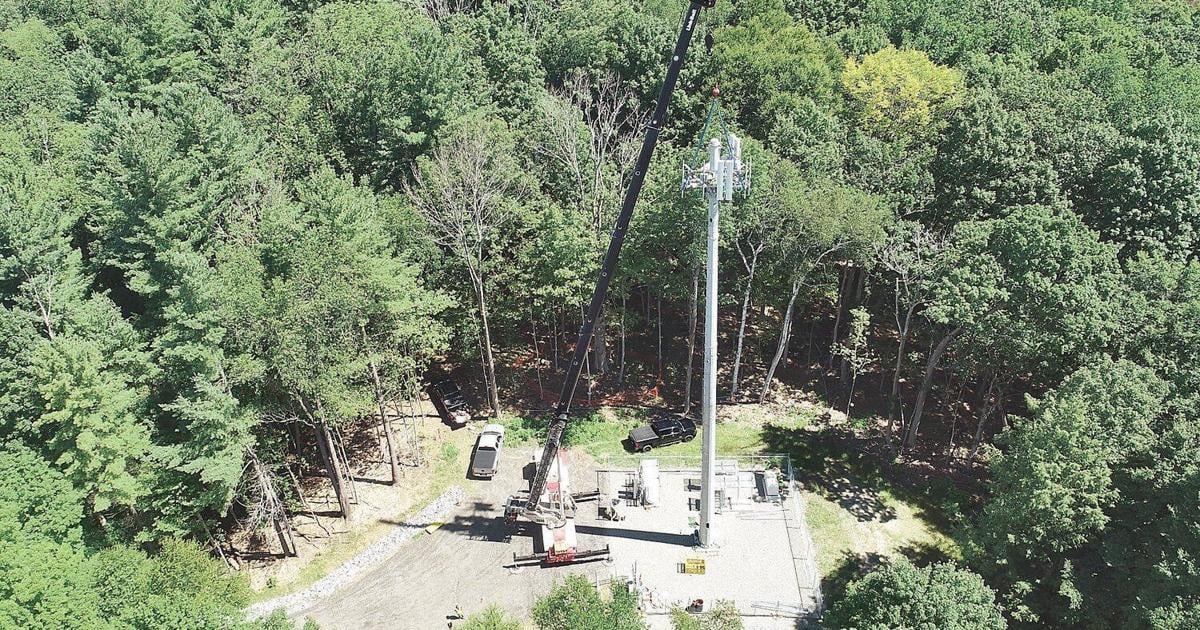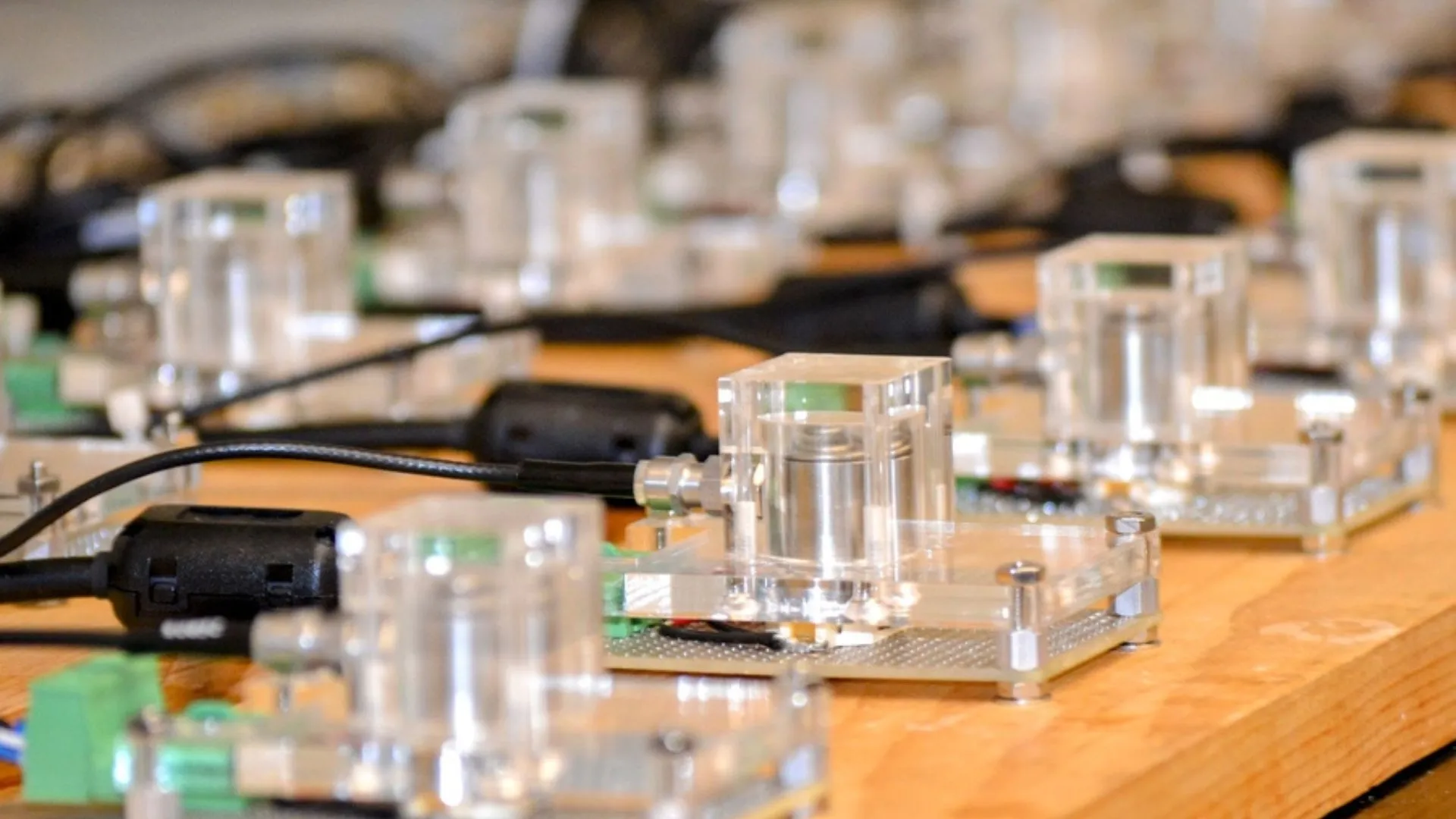Massachusetts’ highest court will weigh the authority of local boards in Pittsfield cell tower case. It could result in a statewide precedent
By By Amanda Burke,The Berkshire Eagle
Copyright berkshireeagle

BOSTON — The state’s highest court will weigh whether local boards have the authority to rein in cell towers.
At issue is a 115-foot Verizon tower off South Street in Pittsfield. Since it went live in 2020, neighbors have said they’ve suffered headaches, nausea, sleep problems and other negative health impacts attributed to the radio frequency emissions.
The Pittsfield Board of Health issued an emergency cease-and-desist order against Verizon after investigating residents’ complaints. The order called the tower a “public nuisance” that was a “cause of sickness,” the first order of its kind in the country, according to ProPublica. But the board rescinded the order weeks later, after Verizon filed a federal lawsuit arguing the move was preempted by the Telecommunications Act of 1996.
The residents sued, arguing that the board capitulated and abandoned its duty to protect public health in the Shacktown neighborhood.
Last fall, the late Judge Francis Flannery ruled that federal law left no room for local regulation provided a tower is operating within Federal Communications Commission standards. The residents appealed.
The Supreme Judicial Court has now decided to hear the case. At the center of the case is whether the Telecommunications Act preempts “state or local regulation of a wireless cell phone tower in connection with radio frequency emissions from the tower.”
In their filings, the Shacktown residents argue that boards of health have long been empowered under state law to protect the public from hazards, like contaminated water, noxious industries or other environmental threats.
That authority, they say, includes responding to the harms linked to wireless facilities, particularly when residents report injuries that, in their view, the FCC has refused to account for.
According to the ProPublica report, a growing body of research has raised concerns that radiation from phones and towers may cause harmful biological effects at levels below the FCC’s 1996 limits, even as U.S. regulators and industry say the risks aren’t proven.
Scott McCollough, an attorney for the neighbors, said the Pittsfield Board of Health itself concluded that emissions from the cell tower were causing injuries to the neighbors, even though the tower is operating below allowable limits.
But the FCC, which McCollough described as a captured industry beholden to the interests of the same corporations it is tasked with regulating, is refusing to revisit emission standards. And in the meantime, the Pittsfield Board of Health says it is powerless to order the tower offline.
McCollough says that this forces residents to move away. He argues that state law requires municipal health boards to protect the health and well-being of residents, and that there should be no exception when the source of the nuisance is a cell tower.
“In this business and in this world of politics and laws and legal fights, we quite often lose track of the human lives that are involved … these are not rich people, these are just regular folks who were in their homes during COVID and all of a sudden they got deathly ill, and their children did too,” he said. “That’s been the most frustrating to me, getting the court to understand that you’re talking about somebody’s lives.”
Attorneys for the Board of Health said that the law is clear, and that only the FCC can regulate health impacts of cell tower emissions. Attorney Buffy D. Lord said the city isn’t disputing reports from the residents about their health, but that their hands are tied, so it cannot order Verizon to take the tower offline.
“I just feel terrible because, from my point of view, the law is very clear. It’s preempted,” said Lord one of three lawyers from Donovan O’Connor & Dodig, a firm representing the Pittsfield Board of Health. “I’m not at all saying that we don’t believe them, I’m saying we’re not the right place.”
“We believe the Board of Health does not have the power to regulate the tower” if it’s in compliance with zoning and FCC regulations, echoed Pittsfield City Solicitor Devon Grierson.
In a Board of Health brief, Lord and the city’s legal team also warned that allowing local intervention would create a patchwork of standards that undermines the uniform national framework for telecommunications infrastructure that Congress envisioned.
The case has drawn attention beyond Pittsfield. The justices have solicited friend-of-the-court briefs, and lawyers involved in the appeal said they expect justices to issue a ruling that could result in a statewide precedent.
The plaintiffs in this case are Courtney Gilardi, Charlie Herzig, Judy Herzig, Mark Markham, Angelika Markham and Elaine Ireland, and McCollough said they are among a group of at least 17 neighbors who say that the cell tower has been making them ill.
Gilardi disagrees with the city’s assessment and said the “move to the Supreme Judicial Court does signal that these issues will be seriously and fairly considered and resolved,” which the plaintiffs are grateful for.
She said the city solicitor and outside counsel advising the board had a conflict of interest, since Donovan O’Connor & Dodig is also represented Verizon and other wireless companies in permitting new towers, including one proposed at Canyon Ranch in Lenox. In a written statement, Gilardi said the arrangement “explains why the law firm threw the Board of Health under the bus,” accusing the attorneys of prioritizing corporate clients over residents’ health.



